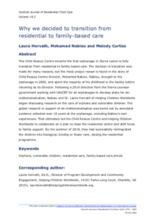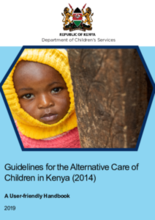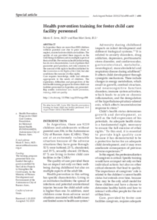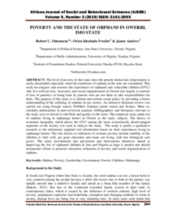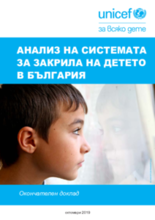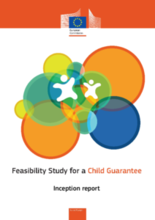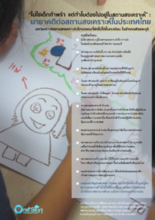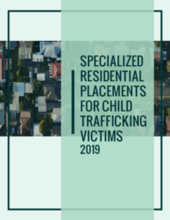Displaying 561 - 570 of 1511
This paper from the Scottish Journal of Residential Child Care outlines the Child Rescue Centre's process of transitioning from residential care to family-based care in Sierra Leone.
This research poster presents an overview of a study conducted in Northern Italy. The study's aims were to: (1) investgate the associatons among atachment paterns, Emotonal Regulaton (ER) strategies and internalizing or externalizing symptoms showed by adolescents in residental-care and (2) examine the predictve role of atachment and ER strategies for the rates of internalizing/externalizing symptoms.
This handbook is a key tool for supporting care reform in Kenya, promoting family-based alternative care for children, and moving away from institutional care.
In this article, the experience, difficulties and perspectives of the first health training program for foster child care facilities personnel in Argentina are presented.
This study investigates and assesses the experiences of orphaned and vulnerable children (OVC) who live with poverty, insecurity and social stigmatization in Owerri due largely to reasons of loss of parent(s) or being born by parents who are not there to take responsibilities for them. The purpose of the study is to inform and reform social policy by providing a better understanding of the suffering of orphans in our society.
This research is based on a stock-taking of the current situation. It is based on a comprehensive literature review and a genuine primary research with service users as well as policy makers, service providers, children and families.
This report - prepared for the European Commission by Applica and the Luxembourg Institute of Socio-Economic Research (LISER), in close collaboration with Eurochild and Save the Children - provides a first mapping of the situation across the 28 Member States of the EU outlining the situation in relation to children, particularly the four target groups (TGs) of disadvantaged children (children in institutions, children with disabilities, children of recent migrants and refugees, and children living in precarious family situations) as well as an indication of the key issues in relation to children’s access to the five policy areas (PAs): housing, healthcare, nutrition, early childhood education and care, and education.
This summary report presents key findings and recommendations from an analysis of unregistered, private children's homes in Thailand's Sangkhlaburi District.
This study outlines the policies, practices, and programming that have been implemented across the US to provide specialized responses to exploited and trafficked youth within residential placement settings.
This field guide, produced by Apolitical in partnership with Hope and Homes for Children, is designed to help public servants understand the issue of children in care. It covers the following learning objectives: (1) Understand why experts say institutional care is harmful to children, (2) Learn about deinstitutionalisation and new approaches to replace institutions and prevent family separation, and (3) Learn about interventions that have improved outcomes for kids who do experience care.

